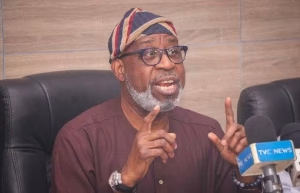Nigeria’s state-owned energy company, NNPC Limited, has secured a pivotal legal victory that rescues it from a potential ₦5 billion (approximately $3.3 million) damages payout in a high-profile dispute with former senator and businessman Ifeanyi Ararume. The ruling by the Court of Appeal in Abuja also safeguards the validity of corporate decisions made by the oil giant’s board since 2021, averting governance chaos in a sector critical to the nation’s economy.
The case traces back to Ararume’s appointment as Non-Executive Chairman of NNPC’s board in September 2021, shortly after Nigeria enacted the landmark Petroleum Industry Act (PIA) to overhaul its energy sector. His tenure was abruptly cut short in January 2022, when then-President Muhammadu Buhari—through a letter from the government—replaced him with Margaret Chuba-Okadigbo before he could formally assume the role. Ararume challenged the move in court, arguing the removal violated legal protocols and the PIA. In April 2023, the Federal High Court ruled in his favor, declaring the dismissal unlawful, ordering his reinstatement, and awarding ₦5 billion in damages while nullifying all board decisions made in his absence.
NNPC and the government appealed, contesting the court’s jurisdiction, labeling the suit as statute-barred due to delayed filing, and rejecting the damages as disproportionate. On August 8, 2025, the appellate court sided with the company, overturning the earlier judgment. The court found the initial claim fell outside legal time limits, deeming the lower court’s ruling erroneous. In a statement, NNPC emphasized the broader implications: the decision preserves board resolutions impacting Nigeria’s oil and gas investments, stabilizes corporate governance, and sets a precedent for future disputes.
The dispute spotlighted tensions between executive authority and corporate governance under Nigeria’s reformed energy laws. While the presidency had previously acknowledged respecting judicial processes, it maintained that Buhari acted within his rights to reconstitute the board. Ararume’s legal team had sought ₦100 billion in damages, citing reputational harm, but the lower court reduced the amount significantly before it was fully overturned.
Analysts suggest the outcome reinforces the principle that statutory timelines for legal challenges must be strictly observed, while NNPC avoids a costly payout at a time of fiscal pressure. The ruling also offers reassurance to investors about the stability of governance structures in Nigeria’s energy sector, which accounts for over 80% of the country’s export revenue. However, the case underscores lingering concerns about transparency in leadership appointments and adherence to due process within state-owned enterprises.
As NNPC moves forward, the resolution allows the company to focus on operational challenges, including meeting domestic fuel demand and navigating global energy transitions. For Ararume, the judgment marks the end of a three-year legal battle that sought to redefine the boundaries of presidential authority in corporate administration.




